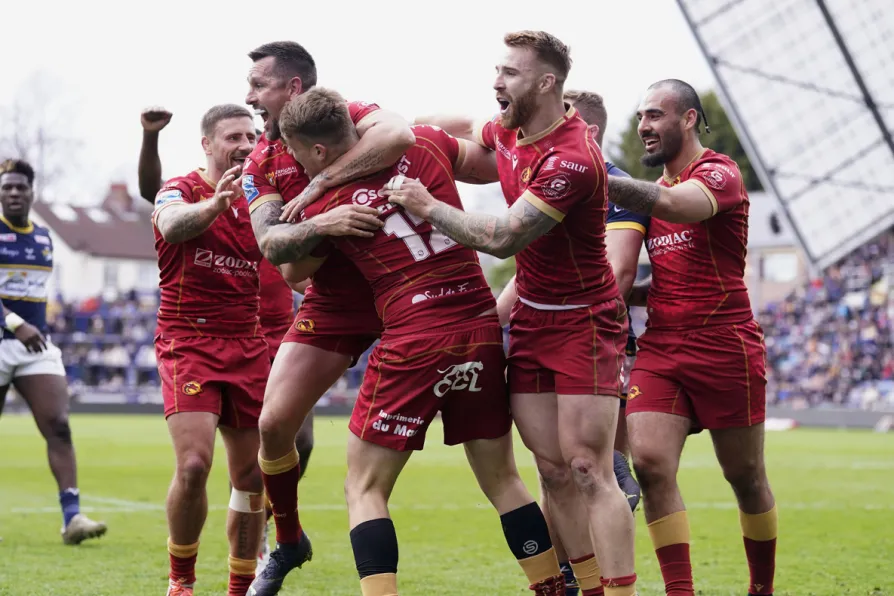Jeu à treize: the oppression of French rugby league
Banned by the FFR and then by Vichy government because of its popularity with the Popular Front, JAMES NALTON highlights the plight of a real working class sport

 Catalans Dragons’ Paul Seguier (centre) celebrates with team-mates after scoring their side’s fourth try during the Super League match at Headingley Stadium, Leeds, March 25, 2023
Catalans Dragons’ Paul Seguier (centre) celebrates with team-mates after scoring their side’s fourth try during the Super League match at Headingley Stadium, Leeds, March 25, 2023
THE HISTORY of rugby league in France is one of oppression and obfuscation. An entertaining, working-class sport pushed into the shadows by authority and, for a number of years, even banned altogether.
The effects of this ban and the intentional bundling of the sport into obscurity are still felt today.
As the Rugby [union] World Cup ploughs on in France, the host country’s premier rugby league team, Catalans Dragons, were last night involved in a final-day fight for Super League’s 2023 League Leaders’ Shield. The most prestigious league title in European rugby league.

This weekend’s Super League matches across the pond could be a boon for the sport, writes JAMES NALTON













